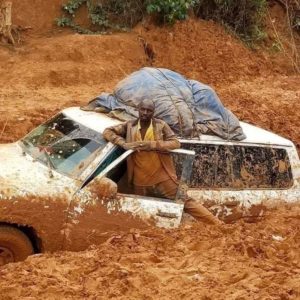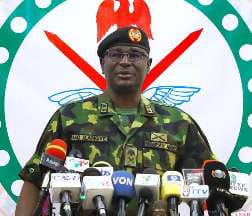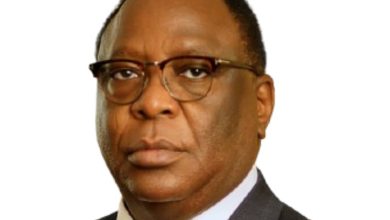OpinionSociety WatchTop News
What Really Stalls Completion Of The East-West Road – Politics Or Corruption?

“This road is a priority…We believe that its completion would open up the region to international investors” – Mr. Uffot Ekaette, 2008
By Substance Udo-Nature
The East-West Road is a strategic inheritance of the Niger Delta, the road that traverses the luxuriant mangrove belt of oil rich States of the Niger Delta.
The thought of the possibility of having an expressway to open up the region, a highway that would run from the extremes of the then Middle Belt down to the base of the delta into the Gulf of Guinea was born in early 1970s. From then till now, approximately 48 years may have passed.
It is therefore sad that from 1970, including the 12 preceding years from the oil epiphany of 1958, till this moment you are reading this line, successive Nigerian governments of seven military heads of state and seven civilian leaders in a cumulative period of 59 years have not been able to make this strategic project a reality. If anything is as ironic, it must be irony itself. Rather, the road has remained a cash cow of bombastic promises and object of ridicule, recurrent subject of endless controversies and experiments, and of accusation and counter-accusations.
It pains more than it shocks to recall that oil was discovered in the region as far back as 1956, in a village called Oloibiri, then in Rivers State but presently in Bayelsa State. However, active exploration and exploitation of oil began in 1958 by Shell Petroleum, arguably the first of oil companies to come to Nigeria.
After years of pretentions and filibustering, of long yawns of hopes against expectations, the administration of former President Olusegun Obasanjo finally awarded contract for the construction of the road in 2006. The East –West Road was originally calculated to be a-338km stretch from Effurun, Warri in Delta State, through parts of Bayelsa, Rivers, and Akwa Ibom States. The administration of former President Goodluck Jonathan however extended it beyond Oron in Akwa Ibom to Odukpani in Cross River State.
The initial contract sum for the road construction as at 2006 was 211billion naira. The project that then was under the Federal Ministry of Works was first awarded to four different construction firms, each taking up a portion. Section 1, Warri-Kaiama(87.4kms), taking a greater part of Delta State, awarded to Setraco Nigeria Limited; Section 2, from kaiama to Port Harcourt (10km), traversing parts Bayelsa and Rivers States, to Julius Berger.
Section 3 of the road (99km), running from Port Harcourt to Eket, Akwa Ibom State, was given to Reynold Construction Company, RCC; and section 4 (51km), Eket to Oron, both in Akwa Ibom State, to Gitto Construction Company. The latest addition/extension for section 5 that would run from Oron to Odukpani in Cross River, with the much talked about bridge across the Calabar River, was awarded to CCECC by the Jonathan administration.
Investigations have revealed that section 2 of the road which was handled by Julius Berger was terminated by the federal government after the company abandoned the site for alleged insecurity posed by militants and it was subsequently re-awarded to the Niger Delta Ministry that later transferred it to Setraco. The completion of the final design and drawings for the East-West Road indicated 42 bridges and 76 culverts. Out of these, as at 2014, about 36 bridges and 756 culverts may have been completed, showing over 60% completion of the road.
The construction of the East-West Road was expected to be the genesis of exodus of business enthusiasts into the region. That automatically means vibrant economic development and emancipation of the region. As the bread-winner of the country, a blessed zone of greater prospects, analysts believe the real development of the area depends largely on this road. It therefore simply amounts to undeniable injustice and crass insensitivity the perennial raping of the region without earnest and commiserate plowback, which most importantly would have been seen in the completion of the road.
At the International Conference on the development of the Niger Delta Region held in Port Harcourt, the Rivers State capital, from December 10 to 12, 2001, under the aegis of NDDC and UNDP, it was strongly recommended that no meaningful and compensating development would take place in the region without the completion of the road. Input from that conference must have been the catalyst that awoken President Obasanjo’s nascent interest on the road in 2006. So must we wait for another conference that is not forthcoming before the road is completed?
It might be expedient to point out that although the Niger Delta region holds about 26 per cent of the country’s population, only 17.6 per cent of the country’s aggregate length of roads sluggishly meandered through the rich swamps of the impoverished people of the region. Hence, a cardinal part of the Niger Delta Regional Master Plan was to aggressively and determinedly tackle this neglect and dearth of transportation infrastructure. The region can only earnestly be transformed if the roads were put to use. It might even prompt settlements like satellite towns and estates for corporate institutions.
In spite of the mindless activities of oil exploitation, a conservative estimate of poverty level in the Niger Delta has shown that 75.5% of the inhabitants live in abject poverty. Inferences from the National Bureau of Statistics (NBS) classify the region among those with the highest rate of unemployment. Child mortality rate is reported to be over 20%, one of the highest in the world.
This, no doubt, has adversely affected the quality of life and composite human development in the area. The minor industrial development of the area as may be discerned in the concentration of oil-related interests in urban and semi-urban areas surprisingly have majority of indigenes from the zone serving as appendages, under-hands, factotums or third party contract staff who work like elephants but eat like ants.
Take an adventure to a place like Bonny Island, where the popular and money-machine Nigeria Liquefied Natural Gas Company (LNG) has its operational base and has been there in the last 15 years. All along your voyage from Port Harcourt City through the creeks and onto the ocean, one constant feature is the gigantic presence of tank farms and vessels leaving the shores, while the whole environment still sits helplessly and hopelessly on oil-polluted, repulsive and nauseating slums.
The only means to assess Bonny, except you were an angel, are through airplanes and luxury house-like boats for oil workers and expatriates, while ordinary spoon-size wooden boats with their attendant vulnerability are designed for the indigenes. That is why the frequent boat mishaps generally take lives of commoners. Somewhere in the Finima Community of Bonny, a swampy settlement around the LNG tall oil towers, people leave with toads and crabs in thatched huts. They are predominantly fishermen who take each day as it comes, having resigned to fate.
For obvious reasons, there are no fruitful farmlands in Bonny or greater part of Rivers by extension, same is the story for states on the delta georgaphical expanse. No one can be bold to swear that the hyped Ogoni Cleanup that drove the 2019 Presidential campaigns has started. What is the connection? The perennial delay in completion of the East-West Road would have been excused by the fact that the government had so much on its hands developing other parts of the region.
Against this backdrop, it is argued that the construction of the East-West Road will improve fishing activities by 27.5% and boost trading activities in the gregarious communities and outside on an average of 24.45%. The road will also improve internally generated revenue by 18%; reduce rural urban drift, enhance employment, and curtail road accidents that have claimed many lives.
According to the original agreement entered into when Mr. Ufot Ekaette was at the helms of the Niger Delta Ministry as its pioneer minister, the road was expected to be completed in 2010. It was subsequently extended with the traditional justifications to 2012, then 2013, 2014, and finally, first quarter of 2015. The greatest concentration of work on the East West Road was during former president Jonathan’s tenure, although his administration must live with eternal shame, blame and stigma of wastefulness, procrastination and lack of focus on a project that should have mattered to it in socio-economic logic than any other at such fortuitous times.
President Buhari pretended to have shown some calculated interest on the road with his administration’s budgetary allocations and bombastic electioneering rhetoric in 2019. But all the noise about the road appeared to have returned to square one as soon as the 2019 elections had produced winners and losers.
Perhaps because of sycophantic politics of self-preservation and opportunism, stakeholders and leaders from the area, apart from trading blames and insults, could not be said to have made enough effort to pressure appropriate quarters to take action on this road. Considerable percentage of reasons the road is where it is today can be traced to insincerity and lack of coordination among leaders from the zone. They have not done enough or their best efforts were not good enough. Simple. On President Buhari’s part, it sounds funny that a road begun long before Nigeria’s Federal Capital was relocated from Lagos to Abuja and turned with rapidity into an adorable cosmopolitan bride with resources from the Niger Delta still remains a foot path. How sad indeed!
Gov. Nyesom Wike of Rivers spoke a bitter and self-implicating truth recently when, at the burial of Madam Blessing Awuse, mother to Onha Sergeant Chidi Awuse, in Emohua local government of the State, he said that “The Niger Delta Region always has key links to the Presidency, yet the East-West Road and other federal government presences in the area have been completely neglected”. As sanctimonious or complicit as Wike stands, the East-West Road remains one of the oldest, if not the oldest, roads that has been victimized by politics and corruption.
If promises by government were anything to hold onto in the last five decades, by today, 10 East-West Roads would have been built in the Niger Delta alone. When government is frank and patriotic about it, devoid of politics and sentiments, the road could be completed to Calabar in a matter of months as it has happened elsewhere where there was genuine interest and presidential commitments. The East-West Road is a weeping albatross on Nigeria’s successive leadership.




